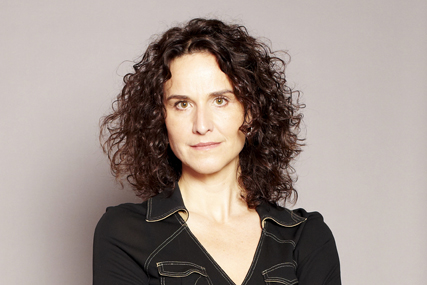Bit of imagination required here. You are a cultural archaeologist, working some time in the distant future, sifting through the faint cultural seams of the 20th and 21st centuries. This is your chosen period - the Great Capitalist Era - and your specialism within it is brand communications, which show up well in the digital debris, and give a feel for the mood of the times.
Right now, you are examining three brand communications strata that gave way to one another within a period of perhaps 60 years. First, in the mid-20th century, came the Transactional Age. Here, brands would signal to consumers what they could expect in exchange for purchase. 'Washes whiter' and 'Helps you work, rest and play', were typical messages of the time.
Then, gradually, that era gave way to something much more interesting: the Inspirational Age, toward the end of the same century. Rather than declare what they could do for you, brands in this period would illuminate what you might do for yourself. They were like life-coaches, dispensing fragments of encouragement to citizens seeking to rise above the ordinariness of things.
An oft-cited brand message from this time, for a shoe company, counselled consumers to 'Just do it'. Another, for a supermarket, enjoined, 'Try something new today'. 'Keep discovering', advised an airline. There was a bank, designated just with the initials RBS, that urged its followers to 'Make it happen'.
Looking back through the layered communications strata, this comes across as a dazzling period, where the relationship between consumers and enterprise was harmonious, where brand trust was strong, and where society and commerce seemed joined in a quest for noble rewards.
Then something happened, something catastrophic, that shattered the foundations of trust. The abrupt change in the communications strata makes that clear. The Aftershock Interlude, as it became called, heralded a big shift back in messaging - toward a painstaking, aching reassurance, on what, just a few years earlier, would have been basics.
It seemed to start with the banks. That same RBS, for example, changed its brand theme to, 'Here for you'. Another pleaded, 'We're on your side'. Rapidly, though, Aftershock messaging spread far beyond this narrow financial sector, an indication, experts now agree, that the whole consumer relationship with capitalism had been poisoned. The 'Keep discovering' airline started to talk about being a friend. The supermarket retrenched to an anxious reassurance on price.
This Aftershock communications era lasted just a few years. Your fellow experts are divided on why this should be, since the corroborating evidence is blurred. One school holds that the promises proved hard to deliver by cumbersome organisations with thousands of employees. So they were hurriedly dropped, leading to further erosion of trust between consumers and capitalist enterprise.
The other view is that the promises were taken so seriously by brands that service was completely overhauled, transparency introduced, price structures simplified, and trust restored, leaving them free to move on to a more enlightened communications era.
From today's perspective, I know which outcome I'd prefer.
- Helen Edwards, PPA Columnist of the Year (Business Media), has a PhD in marketing and an MBA from London Business School and is a partner at Passionbrand, where she works with some of the world's biggest advertisers
30 SECONDS ON ... THE AFTERSHOCK COMMUNICATORS
They've done their research, these brands, and learned that consumer trust is low after the financial crisis. But can their reassuring new messages be backed up by reality?
- RBS 'Here for you' says RBS. That's good to know, but is it really here for me? And what exactly is it doing to prove it? These are the questions consumers will ask. It will have to get better than opening on a Saturday morning - a theme of one of its ads - as it has been doing that since 2008.
- O2 Earlier this year, it launched its 'Thinking of you' ad campaign, featuring a half-goat, half-human character who represents O2's 'mind'. Marketing director Sally Cowdry says the objective is to let customers know that O2 is thinking of them - something one would hope any decent, consumer-oriented business was doing anyway.
- Simplyhealth 'We can be bothered' declares the health insurer in its ads. Are we all supposed to be grateful?
- Nationwide 'On your side' is the theme of the ad campaign that broke this month with a 60-second launch spot and a press release promising a commitment to 'excellent service'. That's the easy bit; let's hope its 18,000 staff have been properly involved and know how they can play their part in delivering it.


